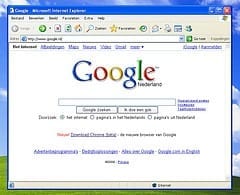Xavier Niel, the French technology entrepreneur, has made a career of disrupting the status quo.
Now, he has dared to take on Google and other online advertisers in a battle that puts the Web companies under pressure to use the wealth generated by the ads to help pay for the network pipelines that deliver the content.
Mr. Niel’s telecommunications company, Free, which has an estimated 5.2 million Internet-access users in France, began last week to enable its customers to block Web advertising. The company is updating users’ software with an ad-blocking feature as the default setting.
That move has raised alarm among companies that, like Google, have based their entire business models on providing free content to consumers by festooning Web pages with paid advertisements. Although Google so far has kept largely silent about Free’s challenge, the reaction from the small Web operators who live and die by online ads has been vociferous.
No Internet access provider “has the right to decide in place of its citizens what they access or not on the Internet,” Spiil, an association of French online news publishers, said in a statement Friday.
The French government has stepped into the fray. On Monday Fleur Pellerin, the French minister for the digital economy, plans to convene a meeting of the feuding parties to seek a resolution.
Free’s shock to advertisers was widely seen as an attack on Google, and is part of the larger, global battle over the question of who should pay to deliver information on the Web — content providers or Internet service providers. An attempt to rewrite the rules failed at the December talks of the International Telecommunication Union in Dubai, after the United States and other nations objected to a proposal that, among other measures, would have required content providers to pay.
Mr. Niel declined to comment on Sunday, through a spokeswoman, Isabelle Audap.
But he has often complained that Google’s content, which includes the ever expanding YouTube video library, occupies too much of his network’s bandwidth, or carrying capacity. “The pipelines between Google and us are full at certain hours, and no one wants to take responsibility for adding capacity,” he said during an interview last year with the newsmagazine Nouvel Observateur. “It’s a classic problem that happens everywhere, but especially with Google.”
Analysts said that French regulators would probably not oppose an agreement between Free and Google aimed at smoothing traffic flows and improving the quality of the service, as long as competitors were not disadvantaged. But they said regulators would probably not allow an Internet access provider to unilaterally block content.
When it comes to blocking ads, though, disgruntled consumers do not have to rely on their Internet service providers. Consumers already have the option of downloading software like Adblock Plus to do the job for them.
via The New York Times – DAVID JOLLY
The Latest Streaming News: Ad Blocking updated minute-by-minute
Bookmark this page and come back often
Latest NEWS
Latest VIDEO









